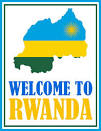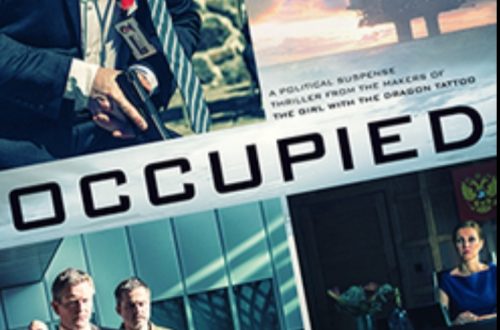This is a cross post from Point of No Return. It also appears in the Jerusalem Post.
The peace agenda is seriously skewed when Arab antisemitism is ignored or exonerated, writes Lyn Julius in The Jerusalem Post.We need a sea-change in the way peace and coexistence projects treat Jewish suffering and rights:
When a mob broke into the Baghdad house of Reuben Qashqoush, a Jewish spareparts dealer, in April, 1973, the incident was just one horrific incident in a catalogue of arrests, hangings, persecution and death which the Saddam Hussein regime inflicted on the remnant of the Iraqi-Jewish community. Reuben, his wife and three of his four children were murdered in the assault.
The murder of the Qashqoush family still haunts Janet Dallal, a classmate of the late Joyce Qashqoush, who was just 16 at the time of the murder. Janet fled Iraq in 1975 and is now a Tel Aviv mother of three and yoga instructor with a keen interest in binational peace projects.
But when she attended a recent conference at the Jewish-Arab village Neve Shalom/Wahat al-Salam, Janet was shocked that one session examining the “healing of communal wounds to achieve reconciliation” did not recognize the trauma of Iraqi Jews – nor indeed the trauma suffered by any Jews from Arab countries.
“All they wanted to talk about was the Holocaust and the Arab Nakba [catastrophe],” she complains.
After introducing the subject, the session moderator said: “the most important step for healing is acknowledgement.” Janet could contain herself no longer and improvised a passionate speech.
“This is a crazy attitude. People lost their lives, others were hanged or slaughtered like sheep!” she exclaimed.
The moderator promised that the issue would be included in future sessions, but it isn’t enough. The peace agenda is seriously skewed when a trauma afflicting more than half the Israeli population – those who descend from refugees from Arab and Muslim countries – has been airbrushed off the agenda of dialogue and coexistence projects.
There are several explanations that this phenomenon is allowed to continue. These initiatives involve a disproportionate number of Ashkenazim, mostly on the political Left. Peaceniks generally see Israel as the guilty party and the Palestinians as innocent victims. Many may be genuinely ignorant of the plight of Jews who fled Arab countries with their lives and a suitcase.
They may not know that the destroyed Jewish communities of the Middle East were indigenous; that there were more Jewish than Palestinian refugees; that they were dispossessed of assets and four times as much Jewish-owned land as Israel itself; and that a sizeable proportion of these Jewish refugees merely moved from one corner of the region to another – Israel.
On the far Left, discriminated-against Sephardic Jews are useful as an instrument to bludgeon the Zionist establishment. A tiny minority of Mizrahi [another common term for Sephardim] communists lend credibility to the myth that Jews from Arab countries are “Arab Jews with false consciousness,” torn from their “Arab heritage” by white European Zionists.
Some guilt-ridden activists have swallowed the propaganda trope that Jews are white colonialists who have come to steal the land from the brown natives. Consequently “native rights” trump Jewish rights.
Jewish rights are an embarrassing spanner thrown in the peace works.
In the rare cases where Jews from Arab countries are recognized as genuine refugees, the disaster which befell them is rationalized as an “understandable backlash.”
The conventional wisdom is: if you want justice for Mizrahi Jews, address your grievances to the Arab states who drove them out.
Nowadays it is almost politically incorrect to say that the Palestinian leadership, complicit with the Nazis, played a significant role in inciting violence against Jews in Arab countries – the 1941 Farhud, for example, in which 180 Iraqi Jews were murdered – and dragged the Arab League into war against Israel. The drive for “Palestinian statehood” has tended to obscure the fact that the Palestinian cause is ultimately pan-Arab, and increasingly pan-Islamic.
The “Jewish Nakba” – for wont of a better expression – is still on the margins of public debate. Ashkenazim still dominate the Israeli government, academia and opinion-forming class, whose natural frame of reference is to European anti- Semitism and the Holocaust. The “Jewish Nakba” has not been taught systematically in schools, it has rarely been raised by officialdom and has only recently attracted political backing with the passing of a 2010 Knesset law insisting oncompensation for Jews from Arab countries in any future peace deal.
However, a genuine appreciation of the suffering of the Jews from Arab countries can help achieve reconciliation, as Professor Ada Aharoni discovered when she taught a course at the University of Pennsylvania entitled “The Nakba of the Jews of Egypt and Arab Countries.”
Over half the 50 students in the class, she recalls, were Arabs. They all expressed great anger when she presented her subject, and claimed that “Nakba” refers only to the tragic events experienced by the Palestinians in 1948.
However, she says that toward the end of the course one Palestinian participant got up and said in amazement: “I’m surprised that you Jews, who are known to be intelligent, enlightened and smart, haven’t publicized this important and interesting story.”
Aharoni was curious to know why it was so important to him that the story be publicized.
“Because it rescues my honor and that of my people,” he replied. “It makes us Palestinians realize that we’re not the only ones who suffered from the Arab-Israeli conflict.
It makes things much easier for us. This information enables us to stand erect and opens opportunities for a sulha [reconciliation].”
Curiously, Janet Dallal, too, found more empathy among Palestinians than her fellow Jews when she mentioned the trauma of the Iraqi Jews at the Neve Shalom conference.
Such projects may be hindering the search for peace by ignoring and exonerating Arab anti-Semitism.
“In the name of Joyce Qashqoush z”l [of blessed memory] and all the people we lost in that hell, we need to take serious action,” Janet says.
We need a sea-change in the way coexistence and peace projects treat Jewish suffering and rights. Reconciliation cannot be based on a partial understanding of the truth.


